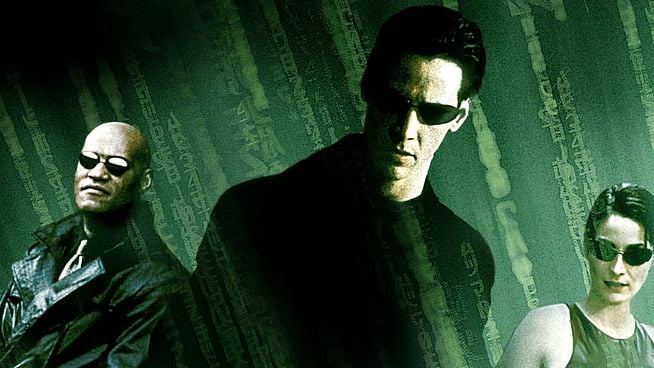What If the Matrix Is Real? 5 Theories That’ll Twist Your Brain
Ever catch yourself staring out the window, zoning out, and wondering if all of this—your job, your coffee cup, your morning commute—is even real? If so, you’re in good company. Ever since The Matrix hit theaters in 1999, it’s sparked a wave of theories, debates, and existential spirals. The idea that we might be living in a simulated reality isn’t just sci-fi anymore—it’s a legitimate conversation in science, philosophy, and tech circles.
So buckle up. Here are 5 theories that suggest the Matrix—or something a lot like it—could be real, and each one might leave you side-eyeing reality just a little harder than before.
1. The Simulation Hypothesis – We’re Probably in One
Let’s start with the big one: Nick Bostrom’s Simulation Hypothesis.
This theory, proposed by Swedish philosopher Nick Bostrom in 2003, suggests one of three things must be true:
- Humans will go extinct before developing the ability to run high-fidelity ancestor simulations.
- Future humans won’t be interested in running simulations of their past.
- We’re almost definitely living in a simulation.
Why would anyone run simulations of their ancestors? For science, entertainment, or even education—just like we build historical video games now. If a civilization ever becomes advanced enough, they could run billions of simulations. Statistically, the odds of you being in the one true “base reality” are microscopic.
And here’s the twist: Elon Musk is on board with this theory. He famously said, “There’s a one in billions chance we’re in base reality.” If that doesn’t make you blink twice at your coffee mug, I don’t know what will.
2. Déjà Vu Is a Glitch in the System
Remember that scene in The Matrix where Neo sees the black cat twice and Trinity says, “They changed something”? That little moment of déjà vu was a glitch in the Matrix. And some people believe that’s exactly what déjà vu is in real life.
The theory? You’re experiencing a moment that’s being altered or rewritten—maybe by whoever’s running the simulation. Think of it like saving a game, going back, and tweaking something. You might not fully notice the change, but your brain senses that something’s off. That strange flicker of familiarity? It could be a crack in the code.
Of course, science has explanations involving memory processing and neural pathways—but it’s not nearly as cool as a system glitch, is it?
3. Quantum Weirdness Could Be Simulation Evidence
Here’s where things get trippy. Quantum mechanics—aka the rules that govern particles at the tiniest scale—doesn’t behave like anything we’re used to. Particles can exist in two places at once, change states when observed, and be “entangled” with others across vast distances.
Now think about video games. When you play one, your console or computer only renders what’s on the screen. The rest doesn’t “exist” until it needs to. Some scientists have drawn a spooky parallel: maybe our reality only “renders” when we observe it. That would explain some of the strange behavior seen in quantum physics.
In other words, the universe could be optimizing its code—just like a game engine does.
4. Mandela Effects Might Be Memory Rewrites
The Mandela Effect is that eerie moment when a huge number of people remember something completely differently than how it supposedly happened. Did the Monopoly man wear a monocle? (He didn’t.) Did Pikachu have a black-tipped tail? (Nope.) Did you think he did?
The theory here is simple but wild: these memory differences are not just false memories—they’re bugs in the simulation. Some even believe we’re experiencing crossover from alternate simulated timelines, or that the simulation was “patched” and the old version of reality got overwritten.
It’s like waking up in an updated game and realizing your favorite level looks… a little different.
5. Advanced AI Could Already Be Running It
Let’s step outside human limitations for a second. Imagine an artificial superintelligence that’s already eons beyond us. If an AI became smart enough to simulate consciousness and reality, why wouldn’t it do it? What if it already has?
This theory overlaps with the idea of post-human civilizations. Maybe the beings running our reality aren’t “aliens” or humans at all—they’re advanced digital entities testing scenarios, running social experiments, or just entertaining themselves by watching how we evolve.
It’s The Sims—but on a god-level scale. And we’re the little avatars going to work and freaking out when we burn toast.
So… Are We in the Matrix?
The truth? We don’t know. But we can’t rule it out either. The lines between reality, technology, and perception are getting blurrier by the day. Virtual reality is becoming indistinguishable from real life. AI is writing songs, making art, and passing college exams. Quantum computers are beginning to poke holes in what we thought we understood about how the universe works.
Whether it’s all a simulation or not, thinking about it reminds us just how strange—and amazing—this existence really is.
Maybe the Matrix isn’t about breaking free from control… maybe it’s about asking better questions.

Bir yanıt yazın